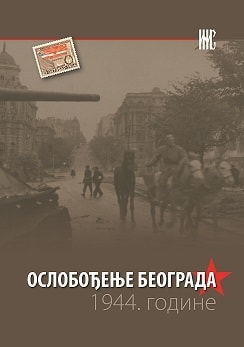Научна сарадња Југославије и Совјетског савеза 1944–1947.
Scientific Cooperation between Yugoslavia and USSR 1944–1947
Author(s): Dragomir Bondžić
Subject(s): Diplomatic history, Political history, International relations/trade, History of Education, State/Government and Education, WW II and following years (1940 - 1949)
Published by: Institut za noviju istoriju Srbije
Keywords: Yugoslavia; Soviet Union; science; cooperation; exchange; help; propaganda; literature; scientists; institutions;
Summary/Abstract: Apart from military and political, economic, cultural and educational cooperation, academic ties of the new Yugoslav authorities with state and scholarly institutions of the Soviet union developed already by the end of 1944. Above all, it was the matter of great expectations and certain aid from the Soviet Union in cadres, material and in organizing of scientific work and of basing of Party and state scientific policy completely on the Soviet scholarly and research model and the achievements of Soviet science. Ideological and political propinquity and the need to develop the backward science and to apply it to the needs of the country and the people, made it necessary to rely on the experiences, achievements and aid of the first country of socialism. This trend found its underpinning in the Treaty on Friendship, Mutual Aid and Afterwar Cooperation between Yugoslavia and USSR from April 1945. Ties between scholarly institutions and scientists were realized through the highest educational organs of the state, and above all through the Society for Cultural Cooperation of Yugoslavia and USSR, founded in 1945. Already from the first afterwar school year Soviet curricula, plans and Russian language were introduced on all levels of education, and it was tried to base the instruction on dialectical materialism. Soviet schoolbooks were translated and Russian-language literature recommended, methodology and results of certain scholarly disciplines were taken over from Soviet science (psychology, pedagogy, history, literary theory, biology etc.) Through exchange and grants primarily Russian-language books and scholarly journals came into libraries of faculties and scientific institutions. Apart from its practical application, Soviet science was strongly advertised and praised as the „most progressive” in the press and in public statements of scientific and public workers, as opposed to the „bourgeois reactionary science” of Western countries. Aid in application and advertising of achievements of Soviet science were lent also by scientists from the Soviet Union, who, apart from lectures at universities and in public, often had the task of organizing scientific research work and of helping with the set-up, organization and work of scholarly institutions. Furthermore, a large number of students and specializing experts, as well as scientists was sent to the Soviet Union. During their stay there they came to know the organization and achievements of Soviet science and they propagated it in public and applied it in their institutions. All forms of scientific cooperation were limited by material resources and possibilities and imbedded in the general cultural and propaganda atmosphere based on ideological and political situation and the relations between Yugoslavia and USSR. After the Resolution of the Informbuerau in 1948 and the conflict between Yugoslavia and USSR scientific ties between the two countries were abruptly severed and the propaganda image of Soviet science was gradually revised.
Book: Ослобођење Београда 1944.
- Page Range: 357-381
- Page Count: 25
- Publication Year: 2010
- Language: Serbian
- Content File-PDF

